A Story in Simplified Chinese and Pinyin, 600 Word Vocabulary Level Book 4 of the Journey to the West Series Written by Jeff Pepper Chinese Translation by Xiao Hui Wang Based on chapters 10 and 11 of the original Chinese novel Journey to the West by Wu Chengen

T his is a work of fiction . Names, characters, organizations, places, events, locales, and incidents are either the products of the authors imagination or used in a fictitious manner. Any resemblance to actual persons, living or dead, or actual events is purely coincidental. Copyright 2017-2021 by Imagin8 Press LLC, all rights reserved. Published in the United States by Imagin8 Press LLC, Verona, Pennsylvania, US. For information, contact us via email at info@imagin8press.com, or visit www.imagin8press.com.
Our books may be purchased directly in quantity at a reduced price, visit our website www.imagin8press.com for details. Imagin8 Press, the Imagin8 logo and the sail image are all trademarks of Imagin8 Press LLC. Written by Jeff Pepper Chinese translation by Xiao Hui Wang Cover design by Katelyn Pepper and Jeff Pepper Book design by Jeff Pepper Artwork by Next Mars Media, Luoyang, China Audiobook narration by Junyou Chen Based on the original 16th century Chinese novel by Wu Chengen, and the unabridged four-volume translation by Anthony C. Yu, University of Chicago Press, 2012 (revised edition) ISBN: 978-1733165006 Version 110
W e are deeply indebted to the late Anthony C. Yu for his incredible four-volume translation, The Journey to the West (1983, revised 2012, University of Chicago Press).
A complete Chinese language audio version of this book is available free of charge.
A complete Chinese language audio version of this book is available free of charge.
To access it, go to YouTube.com and search for the Imagin8 Press channel. There you will find free audiobooks for this and all the other books in this series. You can also visit our website, www.imagin8press.com, to find a direct link to the YouTube audiobook, as well as information about our other books.
T his book is based on chapters 10 and 11 of Journey to the West (, x yu j), an epic novel written in the 16th Century by Wu Chenen. Journey to the West is loosely based on an actual journey by the Buddhist monk Xuanzang, who traveled from the Chinese city of Changan westward to India in 629 A.D. and returned 17 years later with priceless knowledge and texts of Buddhism.
Over the course of the book the band of travelers face the 81 tribulations that Xuanzang had to endure to attain Buddhahood. Each book in our Journey to the West series covers a short section of the original 2,000-page novel. The first three books in the series The Rise of the Monkey King , Trouble in Heaven and The Immortal Peaches all focus on Sun Wukong, the Monkey King, and the fourth book, The Young Monk , introduces Xuanzang. This book, the fifth in the series, tells the last story leading up to the actual journey to the west, which starts in Book 6. While the book has some light moments, it also has some of the darkest and most frightening scenes of all the stories weve told so far, with a series of horrifying visions of after-death punishment of evildoers that are reminiscent of those in Dantes Inferno . The story starts innocently enough, with two good friends chatting as they walk home after eating and drinking at a local inn.
One of the men, a fisherman, tells his friend about a fortune-teller who advises him on where to find fish. This seemingly harmless conversation between two minor characters triggers a series of events that eventually cost the life of a supposedly immortal being, and cause the great Tang Emperor himself to be dragged down to the underworld. In Chinese popular religion, the underworld (, dy, literally ground prison) is not a final destination for sinners as hell is for Christians, but a transitory place that every deceased soul must pass through. The cosmos is divided into three domains: Earth, Heaven, and the underworld. Every being has a soul that survives after death, and upon death, the soul leaves the body and travels to the underworld, where it is judged, punished if necessary, and then assigned to its next earthly life for rebirth. For the Chinese, the underworld is a stable and orderly place, with clerks, bureaucrats, ministers and kings all charged with keeping the afterlife running smoothly.
As the Emperor Taizong discovers, there are even opportunities for financial transactions! The underworld looks a lot like the Earth, except that its inhabitants are all deceased souls waiting for reincarnation. As you can see from the cover illustration, souls leave the underworld via the great Wheel of Rebirth. Six paths lead out of the underworld, each one leading to a Gate of Rebirth. Five of the paths are desireable (or at least tolerable), but a sixth one, the Path of Demons, is reserved for souls who must reincarnate as demons and monsters. Taizong, the hero of the story in this book, was already a wise and compassionate ruler before his unexpected death, journey through the underworld, and return to life. He emerges with even more resolve to rule in accordance with the teachings of the Buddha.
Next page
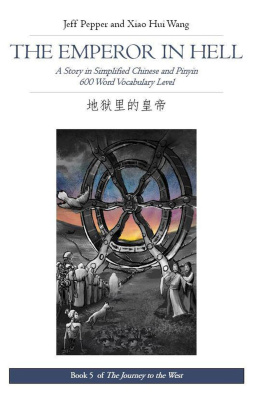
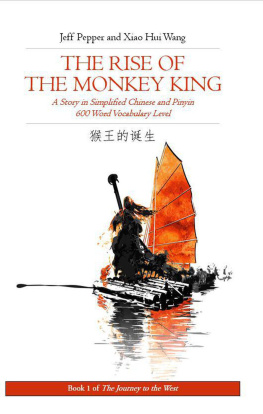
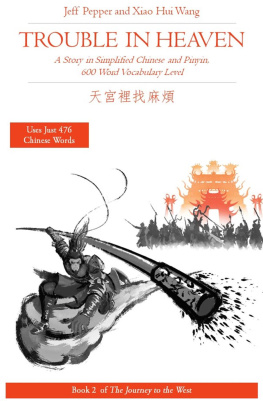

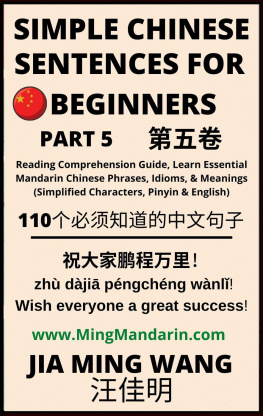

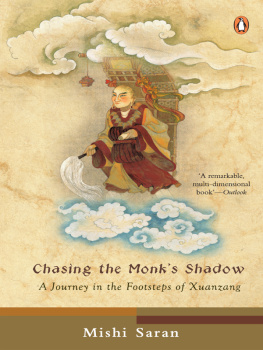
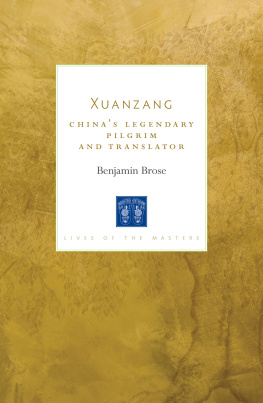






 T his is a work of fiction . Names, characters, organizations, places, events, locales, and incidents are either the products of the authors imagination or used in a fictitious manner. Any resemblance to actual persons, living or dead, or actual events is purely coincidental. Copyright 2017-2021 by Imagin8 Press LLC, all rights reserved. Published in the United States by Imagin8 Press LLC, Verona, Pennsylvania, US. For information, contact us via email at info@imagin8press.com, or visit www.imagin8press.com.
T his is a work of fiction . Names, characters, organizations, places, events, locales, and incidents are either the products of the authors imagination or used in a fictitious manner. Any resemblance to actual persons, living or dead, or actual events is purely coincidental. Copyright 2017-2021 by Imagin8 Press LLC, all rights reserved. Published in the United States by Imagin8 Press LLC, Verona, Pennsylvania, US. For information, contact us via email at info@imagin8press.com, or visit www.imagin8press.com.